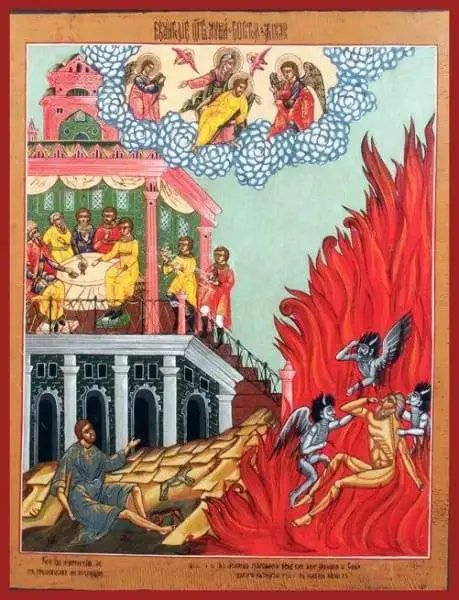
“How unreasonable it is to pray that God’s will be done, and yet resist His call when He summons us from this world!”
It is our sacred duty to do the will of God and not our own. This truth must ever be in our hearts if the prayer our Lord taught us is to be spoken with meaning upon our lips. How unreasonable it is to pray that God’s will be done, and yet resist His call when He summons us from this world! Like rebellious slaves, we struggle and lament, being brought before Him with sorrow, not willingly, but compelled by necessity. And yet, we dare to hope for heavenly rewards from Him, though we come unwillingly! Why then do we pray for the coming of the kingdom of heaven, if the delights of this earthly bondage still captivate us? Why beseech its swift arrival if we choose rather to serve the devil here than to reign with Christ?
The world, which hates Christians, ought not to be the object of our love. Why cling to it, rather than to Christ, who has loved us and redeemed us? The apostle John exhorts us most earnestly in his epistle: “Love not the world, nor the things that are in the world. If any man love the world, the love of the Father is not in him.” For all that is in the world—the lust of the flesh, the lust of the eyes, and the pride of life—shall pass away, but he who does the will of God shall abide forever. Therefore, beloved, let us be resolute in our faith, steadfast in courage, and prepared to embrace God’s will in all things. Let us cast away the fear of death and fix our hope upon the eternal life to come, so that the world may see in us the truth of our faith.
Let us never forget, dearest brethren, that we have renounced the world. We dwell here as strangers and sojourners for but a little while. When the day comes to end our exile, to loose us from the chains of the world, and to restore us to paradise and our heavenly kingdom, let us welcome it with joy. What man, exiled in a foreign land, would not yearn to return to his native country? Paradise is our true homeland, and there awaits us a great multitude of loved ones—a host of parents, brothers, and children who long for our arrival. They, secure in their salvation, remain concerned for ours. What joy it will be, both for them and for us, when we meet again and embrace one another in that eternal home! O the delight of the heavenly kingdom where death is no more, and the bliss of everlasting life is without end!
There shall we behold the glorious company of apostles, the jubilant assembly of prophets, and the countless host of martyrs, crowned in triumph for their steadfast witness in life and death. There, too, are the virgins who, by strength of continence, conquered their passions; there are the merciful, who fulfilled the Lord’s command by their care for the poor and who transformed their earthly wealth into heavenly treasure.
Let us, dear brethren, fix our hearts upon joining them with all speed. May God behold our longing; may Christ perceive the resolve born of our faith. He, who is the rewarder of those who seek Him, will bestow His love most abundantly upon those who have yearned for Him with the greatest fervour.
St Cyprian’s De Mortalitate resonates with Christians in times of crisis. His reflections offer timeless guidance for enduring hardship with hope, trust in God’s promises, and an eternal perspective. He wrote this moving work written during the third-century plague called the Plague of Cyprian. This epidemic caused widespread devastation across the Roman Empire. In this treatise, St. Cyprian reflects on the Christian view of death, suffering, and eternal life, providing comfort and hope to a church facing both severe persecution and the challenges of a deadly pandemic.


